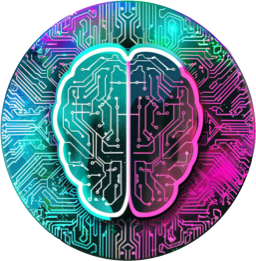In offices around the world, product managers grapple with complex flow diagrams, trying to decipher the intricacies of new systems. Nearby, development teams discuss API calls and microservices, their language a mix of technical jargon that often sounds foreign to non-technical ears. This scene, playing out across various industries, highlights a growing challenge: the widening gap between technical and non-technical product managers.
As artificial intelligence (AI) continues to evolve, it’s not just changing the products we create, but also how we manage their development. This shift is particularly pronounced in traditional industries where the pressure to innovate clashes with entrenched practices and skill sets. But rather than viewing AI as a panacea or a threat, we need to understand its real potential to enhance product management – and its limitations.
The Current Landscape: A Politics and Ownership
The disconnect between product and technical teams is not new, but it’s becoming increasingly problematic as technology grows more complex. In many organizations, product managers often come from business backgrounds, skilled in market analysis and stakeholder management but less versed in the technical nuances of software development.
This gap manifests in various ways:
- Incomplete or vague user stories that frustrate development teams
- Difficulty in prioritizing non-functional requirements (NFRs)
- Challenges in understanding and communicating technical constraints and possibilities
On the flip side, some organizations have swung to the other extreme, hiring former engineers as product managers. While this solves some problems, it can create others, such as over-focus on technical details at the expense of user needs and business goals.
AI in Product Management: Current Realities and Near-Future Possibilities
Contrary to some over-hyped predictions, AI isn’t about to replace product managers or automatically generate flawless requirements. However, it is already proving to be a valuable tool in augmenting PM capabilities. Here’s how:
1. Enhanced Research and Data Analysis
AI-powered tools are significantly speeding up market research and competitor analysis. They can quickly sift through vast amounts of data to identify trends, user pain points, and market opportunities. This allows PMs to make more informed decisions about product direction and feature prioritization.
For instance, a PM could use AI to analyze customer support logs, identifying common issues in a product that might not be apparent from aggregate data alone.
2. Improved Requirements Gathering
While AI can’t write perfect user stories, it can assist in the process. Natural Language Processing (NLP) tools can help PMs refine their requirements, flagging ambiguities or inconsistencies. Some advanced systems can even suggest additional considerations based on patterns in successful past projects.
For example, if a PM is writing a story about a new feature, an AI assistant might prompt them to consider aspects like scalability requirements or accessibility measures.
3. Facilitating Technical Understanding
One of the most promising applications of AI in product management is as a “translator” between technical and non-technical team members. AI-powered tools can:
- Explain technical concepts in simpler terms
- Generate visualizations of system architectures or data flows
- Provide quick summaries of technical documentation
This doesn’t replace the need for PMs to develop technical skills, but it can accelerate the learning process and improve communication with development teams.
The Evolving Role of the Product Manager
As AI takes on more of the data-heavy and routine aspects of product management, the role of PMs will evolve to focus more on areas where human judgment and creativity are crucial:
- Ethical Decision Making: As AI becomes more prevalent in products, PMs will need to grapple with complex ethical questions about data use, algorithmic bias, and the societal impacts of their products.
- Creative Problem Solving: While AI can provide data and suggestions, the truly innovative solutions often come from human creativity and the ability to connect disparate ideas.
- Stakeholder Management and Communication: Building consensus, managing expectations, and communicating vision remain fundamentally human skills.
- Strategic Thinking: Understanding the broader business context and making strategic product decisions that align with company goals will become even more critical.
Challenges and Considerations
Integrating AI into product management processes isn’t without challenges:
- Data Quality and Bias: AI tools are only as good as the data they’re trained on. PMs need to be aware of potential biases and limitations in their AI-assisted insights.
- Overreliance on AI: There’s a risk of becoming too dependent on AI suggestions, potentially stifling creativity or missing important nuances that AI might overlook.
- Skill Adaptation: Both technical and non-technical team members will need to develop new skills to effectively work alongside AI tools.
Looking Ahead: The AI-Augmented Product Manager
The future of product management isn’t about AI replacing human judgment, but about finding the right balance between human creativity and AI-driven insights. The most successful product managers of the future will be those who can:
- Leverage AI tools to enhance their understanding and decision-making
- Maintain a strong focus on user needs and business goals
- Foster collaboration between human team members and AI systems
- Continuously adapt their skills as technology evolves
For organizations across all sectors, the key is to start preparing for this shift now. This means investing in AI literacy for product teams, reimagining product development processes to incorporate AI assistance, and fostering a culture that values both technical understanding and strategic thinking.
By embracing these changes, companies can position themselves to create better products, more efficiently, while also addressing the long-standing challenges of bridging the gap between technical and non-technical team members. The future of product management is not about AI taking over, but about AI helping product managers to be the best versions of themselves.
